In the throes of postpartum depression, the incision site from her Cesarean section still tender, a U.S. Navy veteran in Indiana learned she had been dropped by her health insurance.
Some 500 miles away, in Lee’s Summit, Missouri, Air National Guard member Cortney Frazon was trying to check in for a 20-week ultrasound when she discovered her doctor no longer accepted her insurance. Faced with a crushing out-of-pocket cost, she left.
In Kansas City around the same time, at least two medical providers were telling Audrey Simmons they couldn’t see her because of ongoing negotiations with her insurance, leaving her with limited options during her high-risk pregnancy.
The women were all supposed to be covered by the military’s health insurance program called Tricare — a lifelong benefit promised to many who serve, but one that has been plagued by widespread disruptions to service members, their families and the physicians who accept the insurance following a change in contracts that unleashed a cascade of unanticipated consequences.

Top leadership with both the Navy and Air Force have warned that the Tricare upheaval could create enormous problems for service members and their families, from canceled appointments and a shrinking network of doctors to snafus that prevent those who are insured from accessing necessary health care. “That’s going to have detrimental effects to our family, to our family readiness and possibly to our military readiness,” Master Chief Petty Officer of the Navy James Honea testified last week during a congressional hearing on quality-of-life issues for members of the military.
Do you have a news tip you’d like to share about issues affecting service members and veterans? You can message Melissa Chan on Signal: MelissaChan.70 or contact NBC News securely here.
This chaos is particularly urgent and damaging for new and expectant mothers, when health experts say medical and mental health care is crucial. Four women who recently faced issues with Tricare that disrupted their medical care told NBC News that the stress overshadowed their excitement about their pregnancies. It has caused them to question a health system meant to take care of members of the military and their loved ones.
“It’s just so stressful,” said Simmons, who is four months pregnant. “I feel like the military acts like they’re very family-focused, but I feel pretty abandoned.”
The Defense Health Agency, which runs Tricare, said it could not comment on individual cases, citing federal privacy laws, and would not confirm whether the problems detailed by the women were caused by the larger Tricare disruptions.
“The uniformed service members and their families deserve the best health care available and anytime there is a shortfall of any kind we take it seriously and strive to correct it and reduce the chances of it happening in the future,” the agency said in a statement.
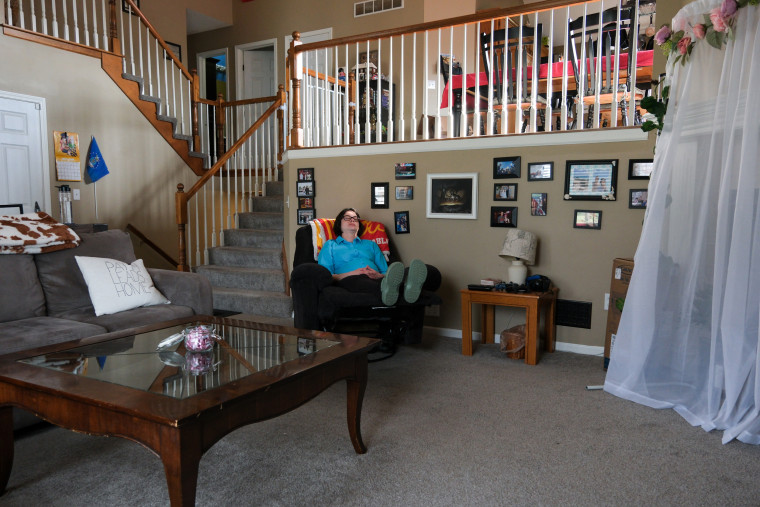
With little to no out-of-pocket costs depending on the plan, Tricare is billed as a major perk to those who join the armed forces, especially in the U.S., where the inability to pay for health care and medicine recently hit a new high, a recent survey found. Health care costs are only growing. In 2024, the national average annual health insurance premium for an individual was nearly $9,000, according to KFF, a nonprofit research organization formerly known as the Kaiser Family Foundation.
Military members who serve at least 20 years, or those who retire for medical reasons, can keep their coverage for life, and so can their spouses. Their children can also stay enrolled until age 21, or 23 if they attend college, said Eileen Huck, acting director of government relations for the National Military Family Association, which advocates for service members and their families.
Tricare serves about 9.5 million people, including active-duty service members, National Guard and Reserve members, military retirees and their families. About a third are active-duty service members or their loved ones, according to the latest data.
In a March news release, Tricare extolled its maternity care benefits and its newly expanded childbirth and breastfeeding support services. In addition to routine doctor visits, ultrasounds and deliveries, Tricare also pays for unlimited doula care during birth, prenatal and postpartum physical therapy, breast pumps and even a third dental cleaning in a 12-month period.
“It is a very valuable benefit,” Huck said. “It is definitely an incentive to join the military and stay in the military, knowing that you and your family will have this health care coverage.”

Simmons, 30, her three young children and her husband, a Missouri Air National Guard member, have been covered for the last three years. She found out in mid-January that she was pregnant, and when she called to make a doctor’s appointment, she was told her OB-GYN couldn’t see her because of ongoing insurance negotiations.
Her concerns grew when her endocrinologist said the same thing, and the hospital where she was initially referred also wasn’t an option. She tried to find a provider she could see. Within 50 miles of her home, only one facility came up — a hospital where she used to work and where she said she and her family had negative experiences.
It was a big change from her previous pregnancy, when she had no trouble finding and booking appointments with in-network providers.
“I’m having to fight with insurance constantly and feeling literally like I have nowhere to go when there’s a problem,” Simmons said. “I almost feel like we don’t have insurance.”

She vented on BabyCenter, a pregnancy-support app with an online forum, and learned she was not alone. About 20 miles away in Lee’s Summit, Frazon wrote on the app that she was also frustrated by the health care system and heartbroken to lose her trusted doctor, too. Frazon, 35, a heavy equipment operator with the Air National Guard, didn’t know that her OB-GYN had left the network until she arrived for her 20-week ultrasound in February, she told NBC News.
“That’s like the first one they do when you get to see the baby,” she said. “I was super excited about it.”
After two miscarriages, Frazon hoped the ultrasound, a scan of her baby’s anatomy that shows growth and development, would ease her nerves. But when she checked in for her appointment, she said the receptionist told her she’d have to pay out of pocket for the visit because the office no longer accepted Tricare. (The health care provider told NBC News it’s working to finalize an agreement with a new Tricare contractor.)

“I had to have them tell me multiple times because I wasn’t processing it,” Frazon said. She chose not to pay out of pocket — or come back. She said it hurt to lose a physician she had built a five-year relationship with, who understood her health history and prior complications, but she could not afford the full costs.
Frazon said she called Tricare for a list of other providers within 30 miles.
“They gave me two,” she said. Frazon booked with one and had the scan done.
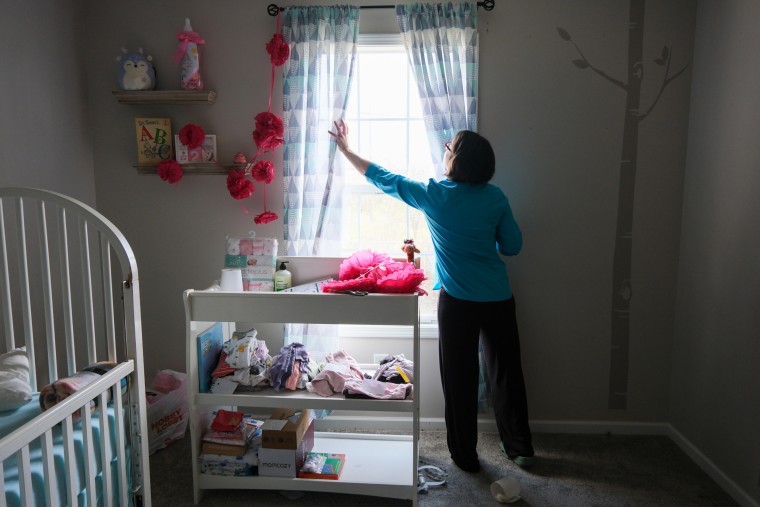
The Defense Health Agency outsources Tricare operations, relying on two companies to manage health care benefits in its two U.S. regions. Much of the wider trouble began Jan. 1, when a company called TriWest Healthcare Alliance took over West Coast management and took on six additional states that were once part of the East Coast region managed by a different contractor, Humana Military.
Tricare is honoring referrals made under the previous contractor through the end of June, the Defense Health Agency said in a statement. And providers, including hospitals that were considered in-network under the last contractor, are being treated as in-network until then.
The transition was a “huge undertaking,” but the Defense Health Agency said it took “painstaking steps” to limit potential interruptions.
The new contract was meant to “improve health care delivery, quality, and access” for U.S. beneficiaries, the agency said.
That’s not what has happened. About 16,000 health care providers on the East Coast went unpaid from December 2024 until at least March due to a data error, Humana said. That forced many to drop Tricare patients altogether, reduce their hours or even consider closing their clinics. On the West Coast, federal officials said beneficiaries have been struggling with long wait times at call centers and delays with processing new referrals for outpatient specialty care.
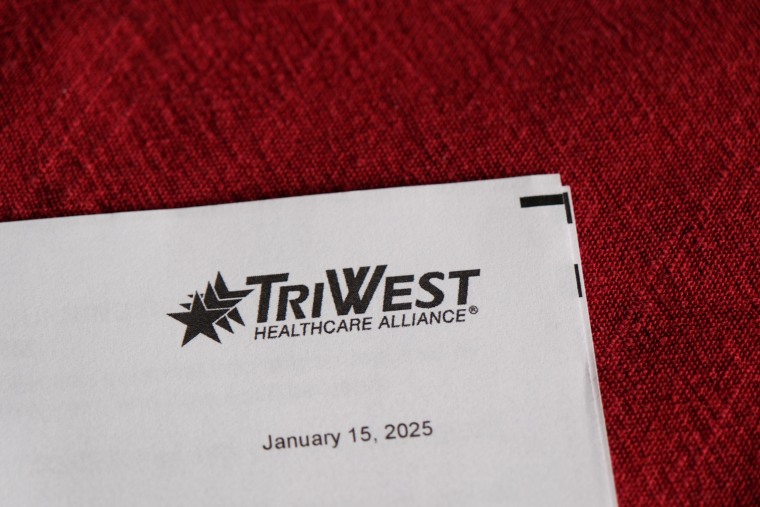
Humana said it fixed the data issue in March. TriWest referred questions to the Defense Health Agency. Civilian providers are increasingly critical to Tricare’s network, after funding shortages reduced availability at military facilities. The longer the disruptions go on, the more concern grows that civilian providers may drop off, Honea, the senior Navy leader, said during his House testimony last week. The Defense Health Agency confirmed to NBC News that providers have left the West Coast region but would not say how many.
In the meantime, there’s been finger-pointing, with providers telling some of the pregnant women that Tricare issues were to blame and the Defense Health Agency saying some providers were failing to honor the referral waivers.
Another issue is Tricare demanding repayment of previously paid claims. In Nevada, a Navy veteran and his wife said Tricare had rescinded over $100,000 in medical claims it had approved and paid years ago. While officials still have not said what prompted the reversals, the couple said Tricare resolved the issue after NBC News published an article about their plight in March, ensuring they did not owe anything.
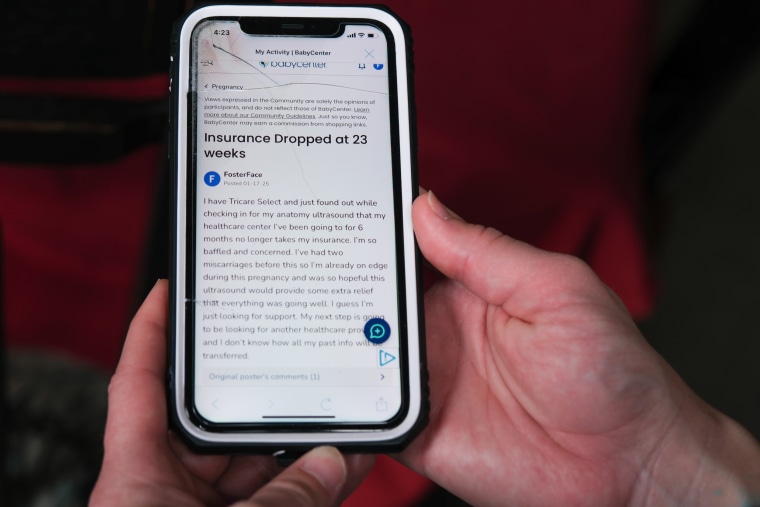
The disruptions meant that Marine Corps Sgt. Savannah Harper, 27, had trouble getting prenatal care in January after she transferred from a California base to one in Hawaii.
When she went to a new medical center for prenatal care, she said she was told she didn’t have a referral on file and couldn’t be seen.
Harper said she repeatedly called Tricare for help, enduring wait times of up to 90 minutes with no resolution.
By early February, she was a full month overdue for her 20-week ultrasound. “I could feel her moving, so I knew she was OK generally, but I didn’t know what limbs she had,” she said. “It was very, very nerve-wracking.”
Desperate, she said she tried to see an Army OB-GYN at a military hospital. After 30 minutes of waiting, she said they told her to call her insurance. Harper said she stormed up to the hospital’s labor and delivery unit and burst into tears. “My emotions were everywhere,” she said.
She said providers there gave her an ultrasound and a referral to get further care off-base. She said she called a list of civilian physicians and took the first one who had an opening.
“It’s been very scary,” said Harper, who is due in mid-May.
Early and consistent health care during pregnancy is critical and can help prevent complications for both the mother and the fetus, according to Dr. Noha Ahmed, a resident OB-GYN at MedStar Washington Hospital Center in Washington, D.C.
Each step matters, as does the timing. Blood tests done around 10 to 13 weeks of pregnancy can detect chromosomal abnormalities, while a 20-week anatomy scan, a major milestone, identifies whether the fetus and its organs are growing adequately, Ahmed said.
Around 25 weeks, a screening can determine risks for gestational diabetes. In the last trimester, Ahmed said, weekly visits are recommended.
“Pregnancy is not a benign condition. It takes a really big toll on the mother,” Ahmed said.
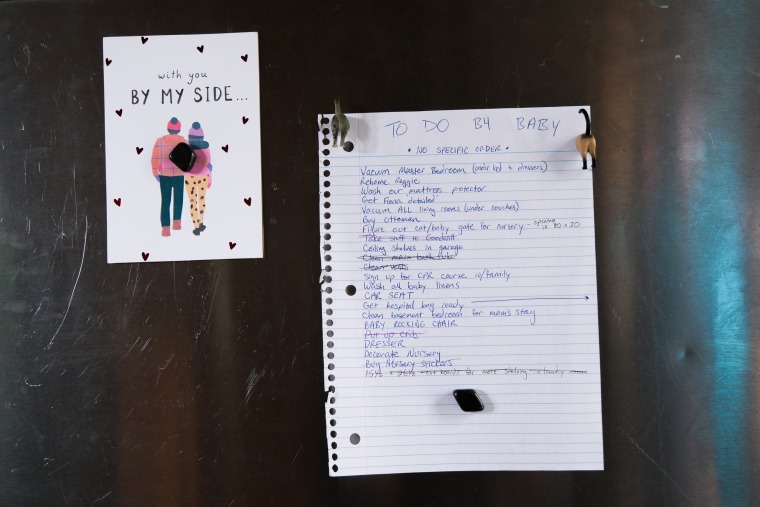
The Navy veteran from Indiana who found out that Tricare had dropped her after she gave birth had no problem enrolling last year in the maternity program run by Humana. In an email reviewed by NBC News, a case manager welcomed her to the program in September, when she was six months pregnant. She delivered the baby on Christmas Eve.
The health care was a bright spot in an otherwise troubling end to her service. She had retired from the military in 2017 because of post-traumatic stress disorder, developed after she said she was raped by another sailor. Her certificate of release from active duty, which NBC News reviewed, shows she was honorably separated under disability retirement — so she was eligible for Tricare.
“The one consolation I had walking away was at least I have my health care so I can start over,” the woman said. NBC News is withholding her name because she said she was a victim of sexual assault. “I feel robbed.”
In January, when she went to a local military office with her marriage certificate, separation papers and her baby’s birth certificate to add her newborn daughter as a dependent, she said she was told she was no longer eligible for insurance, over what she believes was a recordkeeping mistake.
She insisted she should get health care coverage; she had a letter from the Department of Veterans Affairs, which NBC News reviewed, confirming she had a permanent disability connected with her military service.
Soon after, she said she got a call canceling her six-week postpartum appointment because the doctor’s office had been notified that she was uninsured.
She also had to cancel her mental health appointments to treat her postpartum depression and anxiety and begin to ration the medication she had left. She got what she thought was norovirus — vomiting, chills and fatigue — but didn’t see a doctor.
And she struggled with breastfeeding, as many new mothers do. Under Tricare she would have had access to breastfeeding counseling and a dozen other postpartum services.
“I feel like I have failed her,” she said of her baby girl. “This anxiety is worse than it had to be. It’s constant.”
Amid all this, Tricare sent a series of letters, which NBC News reviewed, requesting more than $15,700 in refunds from her medical providers for 66 claims from February 2024 until after she gave birth.
The letters said the providers were responsible for repaying Tricare, and “should there be a need for the beneficiary to make a payment, you will be contacted directly by your provider.” She’s waiting to hear if she’ll need to pay.
In its statement to NBC News, the Defense Health Agency suggested the veteran reach out to customer service.
But she’s long past that. She cobbled together temporary insurance for her baby under a separate Veterans Affairs program, and her husband’s regular enrollment period opened recently, allowing them all to get coverage under his civilian job. The benefits kicked in on April 1.
The first thing she did was book appointments: one for her baby’s four-month check-up, one to see about the painful lumps at her incision site, and another to address her deteriorating mental health.


